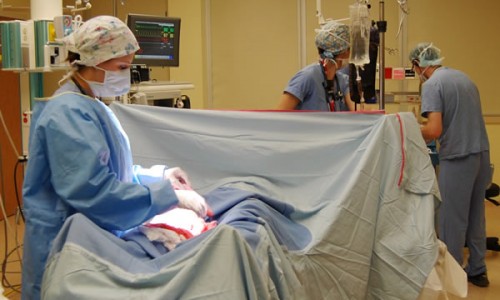Introduction
The University of Ottawa Clinician Investigator Program received approval by the Royal College of Physicians and Surgeons of Canada in 2001. The major goal of the Clinician Investigator Program (CIP) is to assist in the career development of clinician investigators in Canada by providing a formal postgraduate medical education pathway that fulfils the existing specialty/subspecialty requirements of the Royal College and provides, in addition, a minimum of two years of structured, rigorous research training.
It is recognized that two years of research training is usually insufficient to embark on a career as a medical scientist, but individuals who complete the program should have a solid grounding in research and, with additional career specific research experience, may become independent investigators.
For the purpose of this program, health research includes not only the traditional areas of laboratory and clinical biomedical research, but also such fields as economics, management, social, behavioral and information sciences as they apply to health and disease.
This program does not imply the creation of a new specialty or subspecialty, but rather identifies an educational pathway with specific objectives and requirements leading to Royal College recognition on satisfactory completion of the specialty/subspecialty requirements and of the research components of the CIP. The program is available to residents enrolled in specialty or subspecialty residency programs accredited by the Royal College who have demonstrated an interest in and a potential for a career as clinician investigators.
The objectives, training requirements, accreditation, credentialing and evaluation procedures for the specialty/subspecialty component of the CIP will not change for residents enrolled in the CIP.
The generic goals and objectives for the CIP are outlined below. Based on these generic objectives, individual educational objectives must be developed for the research component for individual research residents. These objectives will form an important part of the interim assessments of progress of the research resident and of the verification of completion of the research component of the program.
For individual research residents with a previous PhD degree, the educational objectives will be identical to those without a PhD degree, but evaluated in the context of a postdoctoral research experience.

General Objectives
At the end of the research component of the program, the resident will be expected to have acquired the knowledge, skills, and attitudes fundamental to embarking on a career in health research. In most cases, further research training specific to the resident’s field of interest will be required so that he/she can succeed as an independent investigator.
The CIP should also provide an opportunity to integrate research and clinical care. During the research components of the CT and FT pathways, some time may be spent in clinical activity related to the research; however, the majority of time (at least 80%) must be devoted to research. In the DCT pathway, the requirement during the 27 month research component is to dedicate 75% of time to research, to accommodate integration of clinical training that would normally be undertaken in the PGY3 year of specialty training.
Specific Objectives for Individual Research Residents
At the completion of the research training, the resident will have acquired the following competencies and will function effectively as a:







